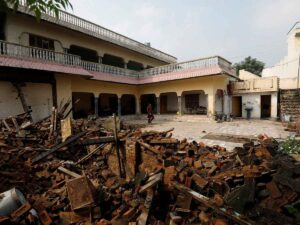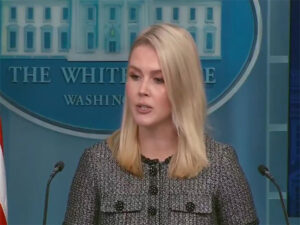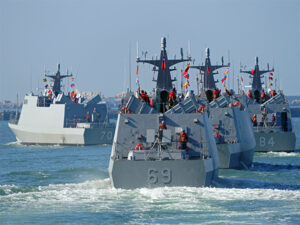Pakistan PM asks ministers, advisers to let go of salaries, benefits as part of austerity drive
Islamabad [Pakistan], February 25 (ANI): Pakistan Prime Minister Shehbaz Sharif has asked his ministers and advisers to let go of their salaries, benefits and luxury cars and fly economy class as part of an austerity drive aimed at saving the government Pakistani Rupee (PKR) 200 billion a year, Pakistan based Dawn newspaper reported.
According to Dawn, the belt-tightening comes as the government is trying to resume a stalled loan programme of the International Monetary Fund (IMF) to secure funds worth USD 1 billion. The premier said an agreement with the Fund was in its final stages.
The expenditure cuts are part of an effort to prevent an economic crisis in the country. The State Bank’s foreign exchange reserves have fallen below a three-week import cover, and inflation remains consistently high.
“Far-reaching results of these (austerity) measures will come to the fore. We will save around over PKR 200 billion due to such measures,” the prime minister told reporters after a cabinet meeting on Wednesday, Dawn reported.
Sharif said that though the measures would not give significant, immediate relief, they would give people a sense that the government realised their pain and agony.
He said these measures would be implemented immediately, adding that “additional steps” would be taken at the time of the budget for the new fiscal year.
Some of the decisions taken in the federal cabinet meeting included the withdrawal of salaries, security vehicles, perks and privileges of cabinet members; a ban on the import of luxury items and official vehicles for over a year; fewer foreign visits; a ban for cabinet members on staying in five-star hotels; only one official plot for a government employee; selling spacious houses given to government officers; the opening of government offices at 7:30 am to save electricity and gas, etc, Dawn reported.
A 15 per cent cut in expenses of government institutions and a reduction in non-combat expenditure of armed forces, was also announced by the prime minister.
The current situation in Pakistan is the most difficult faced by the country in the last two decades, the South Asia Press reported, adding that the country, facing an economic crisis, political chaos, and a rising number of terror attacks along the northwestern areas, has been drained of its resources.
Further, according to the report, the country’s economic deterioration has a direct impact on the public.
The floods in Pakistan came as a severe blow to the cash-strapped nation already grappling with high debt, the South Asia Press reported, adding that the country’s planning commission, agriculture, food, livestock, and fisheries sectors lost USD 3.7 billion in the floods with long-term losses estimated to be around USD 9.24 billion.
In December 2022, inflation in the country stood at 24.5 per cent, almost double of 12.3 per cent from the previous year, the report said, adding that the common people were the most affected by the high flour prices amid the country’s worst-ever food crisis.






